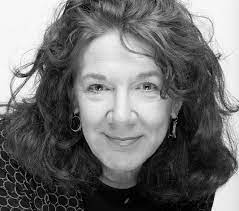
I am perversely attracted to philosophy books, but the rewards are few. As a rule, they speak their own language, which runs circles around mine. Straight talkers like Marcus Aurelius are one thing; trying to divine Descartes, Kant, and Heidegger another.
Barring philosophers, a good substitute for musing on the meaning of life has been reading collections of essays by poets. Give me a poet who is equally adept at prose and I am a happy man. Certainly this was true of a slew of Tony Hoagland books. Ditto Jane Hirshfield. And now I can add Mary Ruefle to the list.
Though I don’t know how she pronounces her name (is it “rueful” like a pot of rue?), Mary Ruefle’s poetic collection of speeches slash essays, Madness, Rack, and Honey, is a relaxing and thoughtful exercise in reading, especially if you enjoy embedded quotes.
The drill, then, goes like this: Mary adds quote to essay, Ken highlights and annotates said quote. What more could any writer (her) and reader (me) ask? Here are a few I have noted:
“Paul Valéry, the French poet and thinker, once said that no poem is ever ended, that every poem is merely abandoned.”
Comment: Any poet who has read his published poem realizes the truth in this. The itch to improve through revision cannot be satisfied.
“Paul Valéry also described his perception of first lines so vividly, and to my mind so accurately, that I have never forgotten it: the opening line of a poem, he said, is like finding a fruit on the ground, a piece of fallen fruit you have never seen before, and the poet’s task is to create the tree from which such a fruit would fall.”
Comment: There you have it. If you have tried but failed to write decent poetry, perhaps you should make like Johnny Appleseed and stop barking up the wrong tree.
The least used punctuation in all of poetry, Ruefle asserts, is the semicolon. Some poets think they should be all-out banned from poetry.
Comment: As noted by my faithful readers of these pages before, I oppose any banning of anything: dog poems, poems that use overused words like “dark” and “darkness,” even poems about cicadas (sorry, Sir Billy of Collins, but that rule is fit for fools).
Among the last words Emily Dickinson wrote (in a letter): “But it is growing damp and I must go in. Memory’s fog is rising.”
Comment: Those last four words are awesome. I loved them so much, I used them in the final poem (“Coda: Miss Emily Speaks”) of my third poetry collection, Reincarnation & Other Stimulants. BTW, I wonder if Emily D ever considered poetry?
Charles Simic once said, “The highest levels of consciousness are wordless.”
Comment: Strange for a man who made his living with words.
“Keats said only one thing was necessary to write good poetry: a feeling for light and shade.”
Comment: I like words like these because they are so cryptic. I can fashion one meaning from them, you another. It’s like getting a pencil to trace the exact spot where light ends and shade begins, then returning to find it the next day.
“Pablo Neruda warns us: ‘We must not overlook melancholy, the sentimentalism of another age, the perfect impure fruit whose marvels have been cast aside by the mania for pedantry: moonlight, the swan at dusk, ‘my beloved,’ are, beyond question, the elemental and essential matter of poetry. He who would flee from bad taste is riding for a fall.'”
Comment: Neruda creates a rule against rules (good), but isn’t this itself a rule (bad)? I leave you with that conundrum because, if you’re going to bang a drum, you can’t do better than a conundrum, thoughtful and chewy.

